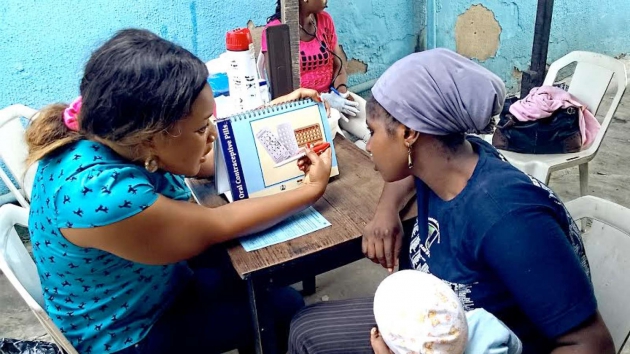Family Planning Acceptability Rises in Abia as USAID Ends SHOPS

Family planning has continued to win more converts in Abia State following an intervention programme, Strengthening Health Outcomes through the Private Sector (SHOPS) funded by the United States Agency for International Development (USAID), which targeted the private sector health providers for capacity building.
A report card of the five-year project, which ended recently showed that 6,988 persons were newly convinced into accepting family planning, 3, 409 family planning revisits recorded through increased communications and attitudinal change. Within the cycle the skills of 58 private providers were enhanced and 45 others are now capable of providing method mix thereby enabling people to make informed choices in family planning methods to adopt.
The project implementation carried out in 10 out of the 17 local governments of Abia included maternal and child health service trainings for providers in order to reverse the nation’s poor MCH statistics that stand at 545 maternal deaths per 100,000 live births and a high under-five mortality rate of 157 per 1,000 live births.
Speaking at a press conference where she announced the end of SHOPS programme in Abia, chief of party, Ayodele Iroko said that it was a success story given the increased family planning awareness and acceptability it created as well as capacity building of the providers.
“Today we’re proud to say that in Abia State when any client want family services they can access it either public or private health facilities,” she said, adding that the full knowledge about FP is now domiciled in Abia through the Health Ministry and the private health practitioners.
USAID focused its SHOPS programme on private health providers based on the fact that the private sector provides 60 per cent of family planning services in Nigeria thereby positioning it as a key entry point for addressing health needs. Not only that, the International Finance Corporation (IFC) in its report said that over 50 per cent of rural Nigerians routinely turn to private-for -profit health facilities to meet their basic health needs.
Iroko assured that with the skills they have now acquired through SHOPS the private providers were now in good stead to deliver quality FP services to people that need them, noting that generations unborn in Abia would hold them responsible for whatever happened to them in future.
She said that in implementing SHOPS the cultural and religious sentiments over the issue of family planning was taken into consideration as people were made to actually understand that FP was meant for them to improve the quality of their lives.
Read more at http://www.thisdaylive.com/index.php/2016/12/15/family-planning-acceptab...












